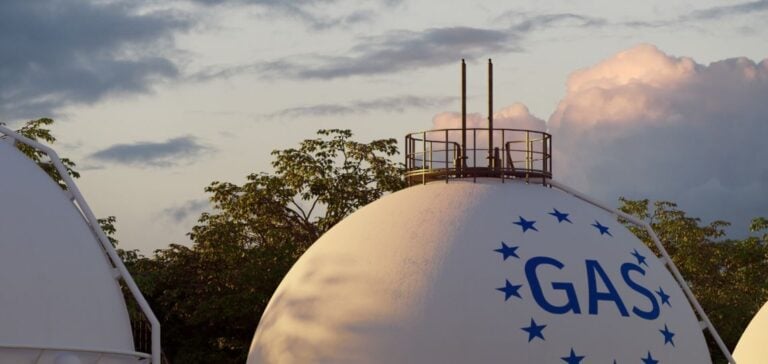Daily natural gas injections into European underground storage facilities have surpassed 500 mn cubic metres for the first time since May 2022, according to data from Gas Infrastructure Europe (GIE). This record high in two years comes as demand for stock replenishment intensifies ahead of the coming winter.
A significant lag on EU targets
As of June 1, total injection volume had reached 584 mn cubic metres, while withdrawals were limited to 15 mn cubic metres. Total storage stood at 53.6 bn cubic metres, making it only the sixth-highest volume ever recorded at the beginning of June. Currently, reserves are 48.86% full, down 10.81 percentage points from the five-year average and well below the 70.1% recorded a year earlier.
Under European Commission requirements, member states must raise their storage levels to 90% by November 1. To meet this threshold, the European Union must inject at least 61 bn cubic metres in the coming months. This represents an increase of nearly 50% compared to the previous season and is among the highest injection volumes ever recorded.
Market pressure and rising gas prices
The slow progress in filling storage contributes to the upward pressure on European gas prices. In May, the average gas purchase price stood at approximately $412 per 1,000 cubic metres. According to the Gas Exporting Countries Forum (GECF), the European market may face significant challenges in meeting its storage targets. The organisation also forecasts that summer spot market prices will exceed winter levels, making injections less economically viable.
Gazprom has already warned of logistical and structural hurdles for Europe, particularly intensified competition for liquefied natural gas (LNG) from Asia. Rising Asian demand and the lack of significant new regasification capacity in Europe are fuelling this pressure.
Record LNG imports in May
In May, European LNG imports reached a record level of 12.75 bn cubic metres. During the previous heating season, the European Union imported nearly 63 bn cubic metres, the third-highest volume ever observed for that period. Despite this trend, regasification capacity was used at only 53% of its maximum potential.
Meanwhile, wind generation contributed 15% to the EU’s average electricity output in May, while forecasts predict a warmer week ahead across the continent, influencing short-term energy consumption.






















